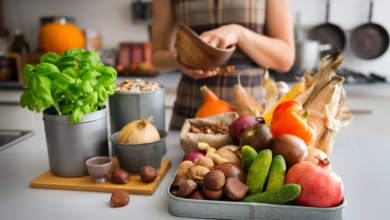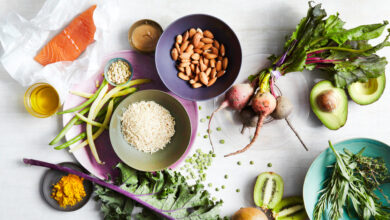Mastering the Art of Healthy Cooking: Tips and Tricks

Cooking nutritious meals is not only vital for our overall health but can also be an enjoyable and rewarding experience. If you’re looking to enhance your skills in the kitchen and become a master of healthy cooking, these tips and tricks will help you create delicious meals that nourish your body and satisfy your taste buds.
- Start with Fresh and Whole Ingredients: One of the fundamental principles of healthy cooking is using fresh, whole ingredients. Incorporate a variety of fruits, vegetables, whole grains, and lean proteins into your meals. Choose seasonal produce to ensure optimal taste and nutritional value. Organic options reduce exposure to harmful pesticides. Fresh herbs, spices, and aromatics like onions and garlic can add depth and flavor to your dishes without relying on excessive salt.
- Experiment with Healthy Cooking Techniques: Discover alternative methods to traditional frying and sautéing that tend to require added fats. Prepare your meals by baking, grilling, steaming, or boiling. These techniques help retain the natural flavors of your ingredients and eliminate the need for excessive oils. Consider investing in kitchen gadgets like an air fryer for a crispy texture without the guilt. Stir-frying is another excellent option that uses minimal oil while maintaining the color and texture of ingredients.
- Be Mindful of Portion Sizes: Portion control is crucial for maintaining a balanced diet and a healthy weight. Become familiar with recommended portion sizes to prevent overeating. Use smaller plates, bowls, and utensils to create the illusion of a fuller plate. Make lean proteins the focal point of your dish, while grains and vegetables act as complementary sides. Strive for a balanced meal that incorporates all necessary food groups.
- Swap in Healthy Substitutes: You don’t have to sacrifice taste for health. Find healthier alternatives for ingredients that may be less nutritious. For instance, substitute creamy sauces with Greek yogurt or cashew cream. Swap out refined sugars for natural sweeteners like honey or maple syrup. Ditch processed, high-sodium condiments for homemade dressings using vinegar, herbs, and spices. A well-stocked spice rack provides endless opportunities to enhance flavors while keeping your meals nutritious.
- Plan and Prep Ahead: Take advantage of meal planning and preparation to ensure healthy choices throughout the week. Plan your meals in advance, considering a variety of recipes that incorporate different nutrients. Prep ingredients such as chopping vegetables or marinating proteins ahead of time to save precious minutes during busy weekdays. Batch cooking is also a smart strategy, as you can prepare larger quantities and freeze leftovers for quick and healthy meals during hectic times.
- Get Creative and Adapt Recipes: Don’t be afraid to adapt recipes to make them healthier. Reduce the use of salt, sugar, and unhealthy fats without compromising flavor. Experiment with whole-grain or vegetable-based alternatives to traditional ingredients like pasta or bread. Incorporate more plant-based meals into your rotation for added nutrients and sustainability. Explore different cuisines and create unique flavor profiles to keep things exciting in the kitchen.
- Embrace the Learning Process: Becoming a master of healthy cooking is a journey that requires patience and experimentation. Expect a learning curve as you try new recipes and techniques. Don’t be discouraged by mistakes; instead, view them as valuable lessons. Seek inspiration from reputable cookbooks, cooking blogs, and YouTube channels dedicated to healthy cooking. Remember, practice makes perfect, and with every dish you create, you’ll gain more confidence and refine your skills.
- Practice Mindful Eating: In addition to cooking nutritious meals, practicing mindful eating is equally important. Slow down, savor the flavors, and enjoy every bite. Take the time to fully engage your senses, appreciating the textures, aromas, and tastes of the food. Listening to your body’s hunger and fullness cues can prevent overeating and help you develop a healthier relationship with food.
- Stay Consistent and Celebrate Progress: Mastering the art of healthy cooking is a lifelong endeavor. Stay committed to your goal of cooking nutritious meals and adopting a healthier lifestyle. Celebrate your progress, no matter how small. Remember that sustainable change takes time, so be patient with yourself. Stay curious, keep learning, and enjoy the process of creating nourishing and delicious meals for yourself and your loved ones.
By implementing these tips and tricks into your cooking routine, you’ll soon find yourself mastering the art of healthy cooking. With practice, creativity, and a focus on wholesome ingredients, you can create mouthwatering meals that contribute to your overall well-being. Get ready to embark on a culinary journey that will not only benefit your health but also bring joy and satisfaction to your kitchen.




